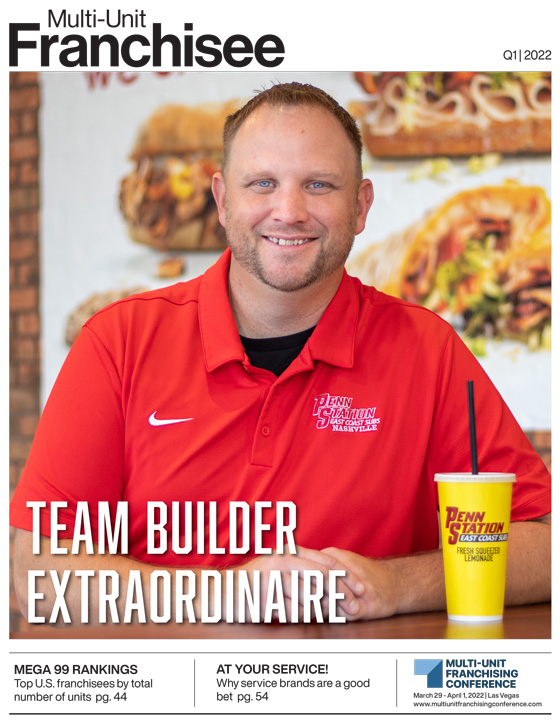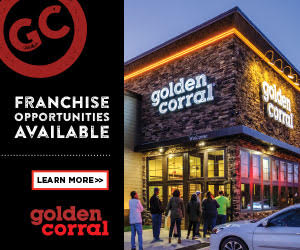Hiring and Retaining Employees in Today's Tight Labor Market, Part 1

For most franchisees, hiring and retaining high-performing employees has always been an occupational hazard. Factor in a worldwide pandemic and the headache is even worse.
As the pandemic lingers into yet another year, the one-two punch of critical labor shortages and high expectations by job-shopping candidates seems here to stay. Today, as franchisees navigate their way through the start of an uncertain 2022, it’s become tougher than ever to find, hire, and retain workers they can depend on to train, remain, deliver great service, and keep their multi-unit ship afloat.
But don’t ever count out multi-unit franchisees, no matter how great the challenge. They (you!) are a resourceful, innovative, determined breed. If they can’t find a solution, they create one.
So what adjustments have they made to help them attract and hold onto the talent they so desperately need in today’s economy?
We asked four battle-tested franchisees to weigh in on the state of today’s labor landscape and how they are leveraging technology, flexible scheduling, wages, and benefits to maintain a culture where people want to work for them – and build a bench to prepare for future growth:
- Fred Punke of Punke Holdings, 30 Supercuts and Cost Cutters in Indiana and Kentucky
- David R. Blackburn, CEO and COO of Southern Rock Restaurants, the largest franchisee of McAlister’s Deli
- Joshua Morris, co-founder of Blu Water Brew, with Scooter’s Coffee locations spread across Iowa, Minnesota, and Texas
- Brian Pyle, CEO of ERC Management, who operates 20 Freddy’s Frozen Custard & Steakburgers in Colorado and Alabama
How did Covid affect your ability to hire and retain great employees?
Fred Punke (Supercuts, Cost Cutters): The government lockdowns, restrictions, and corresponding government subsidies paid directly to employees if they didn’t work made hiring more difficult than the actual Covid virus.
David R. Blackburn (McAlister’s Deli): The workforce was immediately on edge, not knowing if they should stay home to protect themselves or their families, and the media could be quite confusing during this time. We experienced about 40% of the workforce retreating or looking for other types of work since so many other employers were looking for people. Quickly we saw that the demand for quality employees was rising, so like everyone else we had to increase the compensation we offered. Pre-pandemic labor inflation was already some of the highest I had ever seen, but we made a deliberate and strategic move to increase compensation by about $2 an hour. We also knew that with so many hospitality organizations now running ads to recruit, we had to own the headline, so we offered sign-on bonuses of up to $1,000 per employee in more critical staffing locations. We hired more than 300 people with this incentive and used that headline to gain traction to restaff. I am happy to report we are now running consistently at 90% of the staffing levels we would have considered normal.
Joshua Morris (Scooter’s Coffee): It affected us differently during different times of the pandemic. There was more fear early on, financial incentives to stay home, and new guidelines most of us had never experienced. Introducing temperature checks, masking, and quarantine timing brought a whole new complexity to everyone’s business.
Brian Pyle (Freddy’s): Covid affected our ability to hire because the pool of available employees is much smaller than it was pre-pandemic. Most restaurants are severely understaffed. You can see it in the limited hours. So the ability to hire is really about creating confidence in our business that we have things in place to keep you safe. As far as retention, I sent out a letter on March 16, 2020 that said we were not going to let anyone go because of Covid, which we never did. We didn’t cut hours. We kept our team intact as much as they were comfortable working, and we put measures in place to ensure the safety of our employees. They understood that if they worked for Freddy’s in our group, they were going to have a job.
In what ways did the pandemic make it harder for you to find employees?
Punke: We found that many people who needed to work and generate income beyond what the governments were paying in subsidies had to find work outside our specialized industry. When we were able to open back up, they already had other jobs and were not as interested in coming back to their chosen profession.
Blackburn: So many businesses are hiring at once. Every restaurant has been hiring and offering more money for employees to leave their current jobs, making some hires more transient than normal. However, many of those offers are made in desperation and are unsustainable. The silver lining is that this competition for employees has helped increase the compensation of our industry workers and will be healthy in the long run.
Morris: Financial incentives to stay home certainly affected the labor force. Since we employ many high school and college students, school closures, return to school dates, and usual winter/summer schedules changed, especially in our more seasonal resort areas where we depend on summer college students. Rising wages also became a hot topic, especially in the food and beverage space. I think it was a reset for many front-line workers to see if they wanted to be in different industries.
Pyle: The ability to hire has been a challenge because, again, all restaurants are looking to fill jobs and there’s a small pool of employees. Our challenge has been to set ourselves apart from all the other businesses and get that message out.
What are some of the ways you found to keep your employees engaged and committed?
Punke: I hired more people in our back office and above-store management team to stay engaged with employees daily and ensure their needs are being met. We also rolled out a benefits package that is pretty great, so we can differentiate from our competition and create a sticky employment relationship.
Blackburn: At McAlister’s Deli and Southern Rock Restaurants, we have always been committed to taking care of our team. A great working environment with an appreciation for their contributions, treating everyone with respect, and scheduling flexibility go a long way. We of course have vacation pay, 401(k), and medical insurance available, but at the end of the day, you must meet the financial needs of your employees and give them a fun environment to work in so they look forward to it every day.
Morris: First and foremost, paying more will get you only so far. Competitive pay is important, although it’s not the most important. We conducted exit interviews a few years ago in my other business. Pay was the third-place reason for leaving. The top two were communication and training, respectively. I don’t believe any of this has changed since the pandemic began. We emphasize both consistently with our managers. People want clear and respectful communication, and they want to feel they are being given the tools to succeed. We also mixed in some wage increases and retention bonuses. Culture has to be top of mind. Every location has its own culture, but it must have influence from the top down. Every employee must understand their role, their importance, and be thanked for what they do for our customers daily. That being said, some attrition can be positive. If we feel that we have operated to our core values and provided these things to the employee and they still fail or become disruptive, then we move on for the sake of our entire team. I’m a big believer that there are only two reasons for failure: unable or unwilling. We can teach the skills if someone is willing.
Pyle: It used to be you needed to work 50 hours a week and be open every weekend in the restaurant world. My former background was in banking, so to me, flexibility and hours are such an important piece to offer in a work-life balance. Being flexible in how you look at things can help that person’s work-life balance. You never know when someone’s situation could change. And because you weren’t willing to give them that flexibility early on, you never got the chance to see what that person could have been. So whether a person can work one day a week, two days a week, or only on Mondays, Tuesdays, and Thursdays, we really have become a more flexible company. We’ve always had that approach, but we’re starting to evaluate how to become even more flexible in the schedule and hours and keep work-life balance in mind when we’re trying to operate a business.
4 questions next time: How did you find employees to replace those you lost? Did you try any employee-retention strategies that simply failed? What are you doing differently today attract and retain employees today compared with 3 years ago? What role has technology played in strengthening your bench?
Share this Feature
Recommended Reading:
Comments:
comments powered by DisqusFRANCHISE TOPICS
- Multi-Unit Franchising
- Get Started in Franchising
- Growth
- Operations
- Open New Units
- Leadership
- Marketing
- Technology
- Legal
- Awards
- Rankings
- Trends
- Featured Franchise Stories
FEATURED IN

Multi-Unit Franchisee Magazine: Issue 1, 2022
$150,000
$250,000




 The multi-unit franchise opportunities listed above are not related to or endorsed by Multi-Unit Franchisee or Franchise Update Media Group. We are not engaged in, supporting, or endorsing any specific franchise, business opportunity, company or individual. No statement in this site is to be construed as a recommendation. We encourage prospective franchise buyers to perform extensive due diligence when considering a franchise opportunity.
The multi-unit franchise opportunities listed above are not related to or endorsed by Multi-Unit Franchisee or Franchise Update Media Group. We are not engaged in, supporting, or endorsing any specific franchise, business opportunity, company or individual. No statement in this site is to be construed as a recommendation. We encourage prospective franchise buyers to perform extensive due diligence when considering a franchise opportunity.